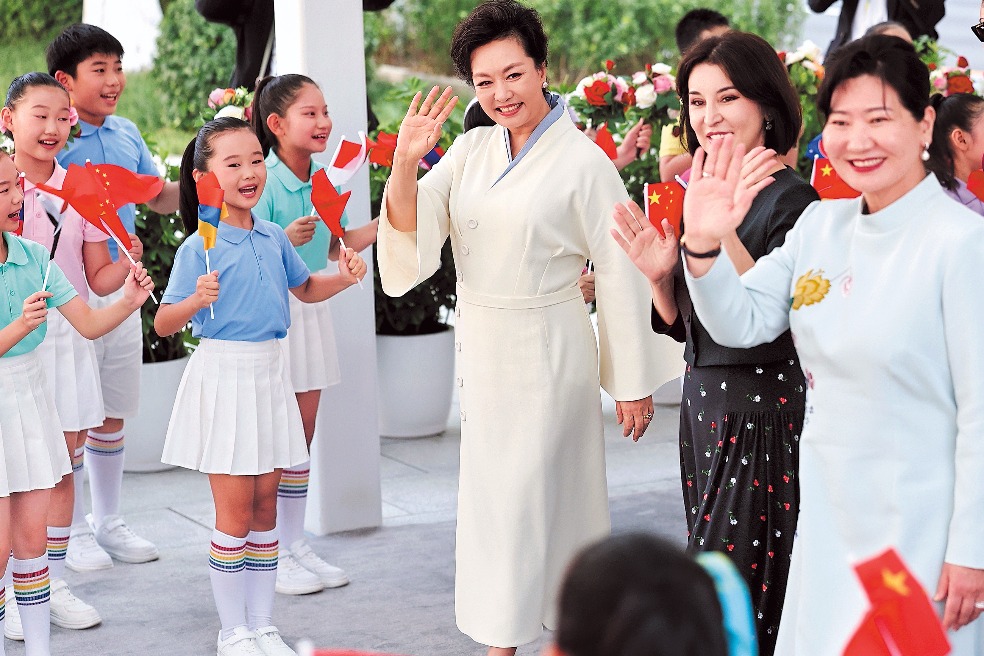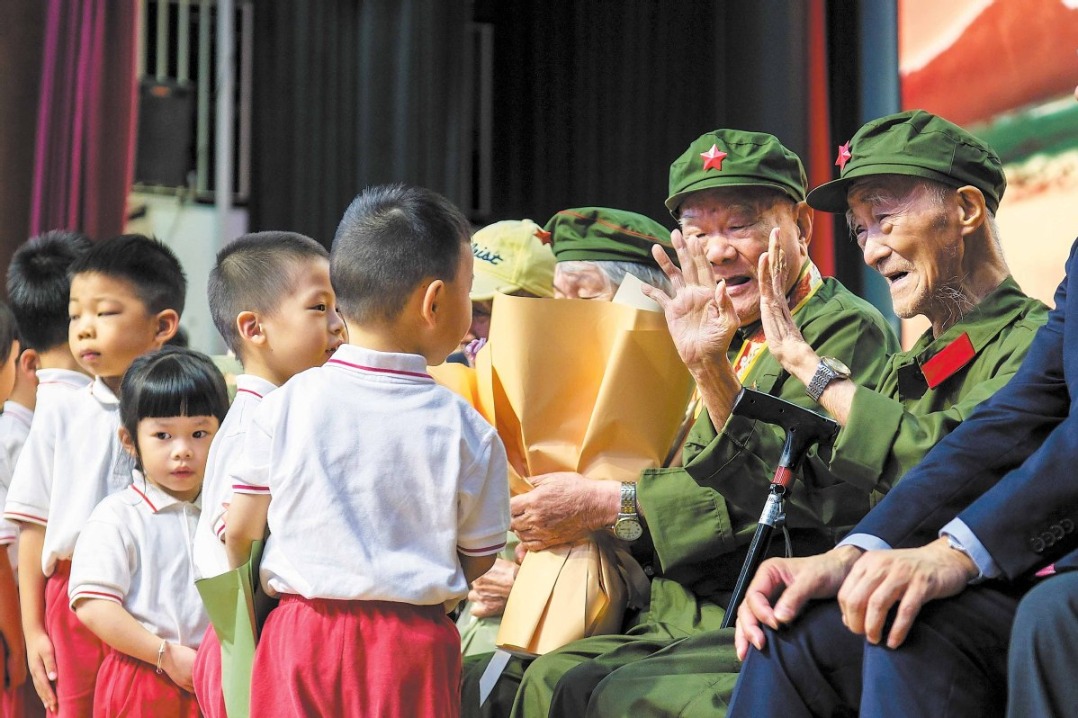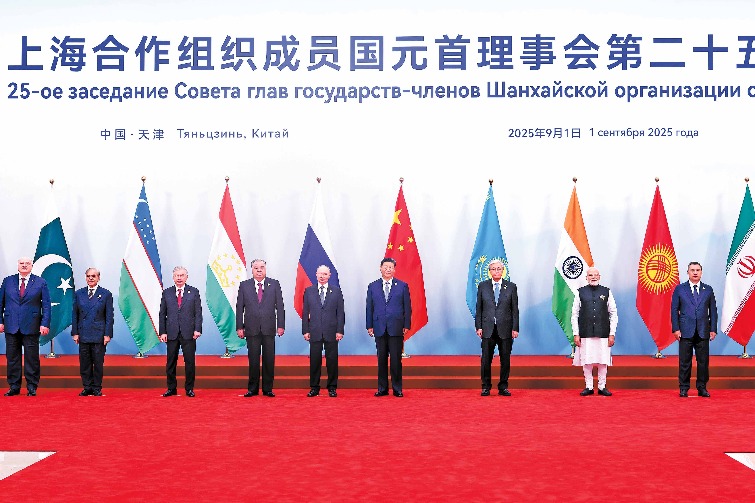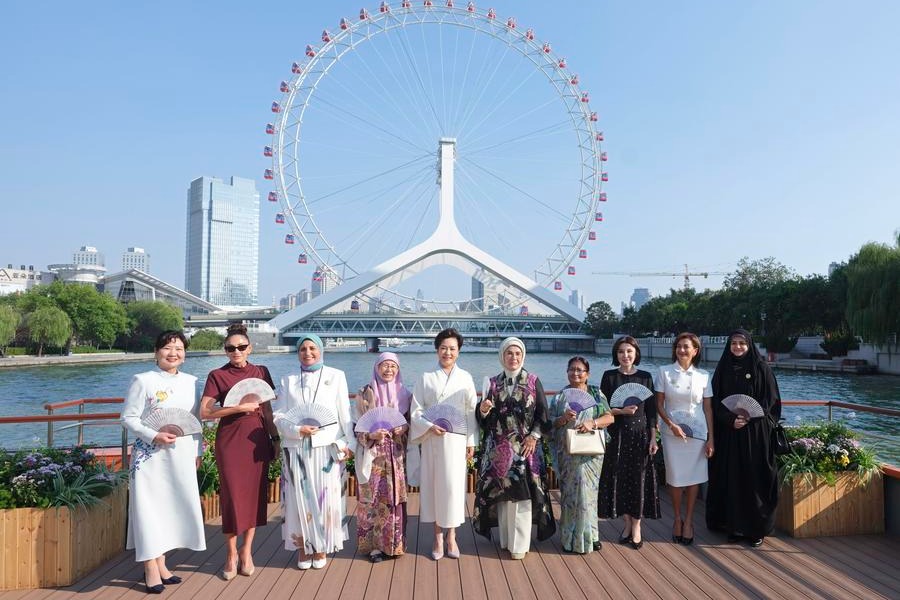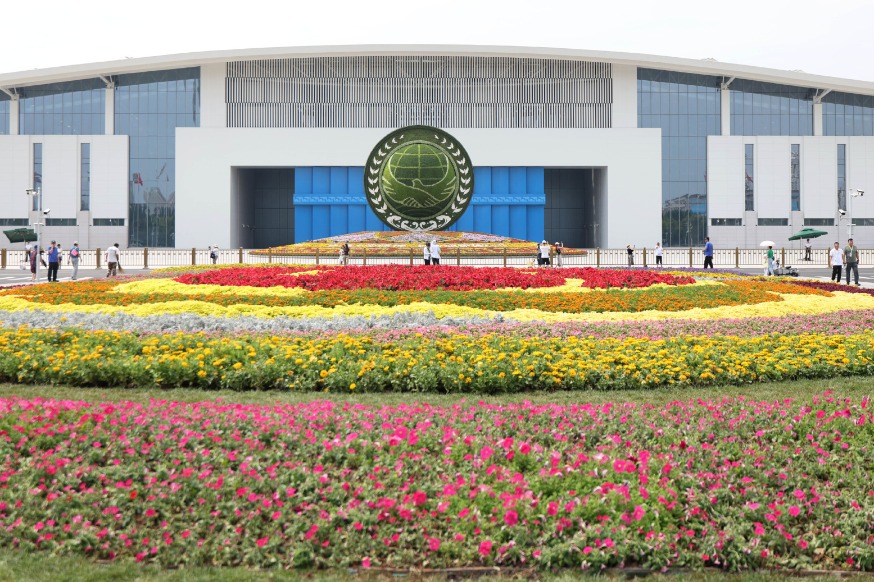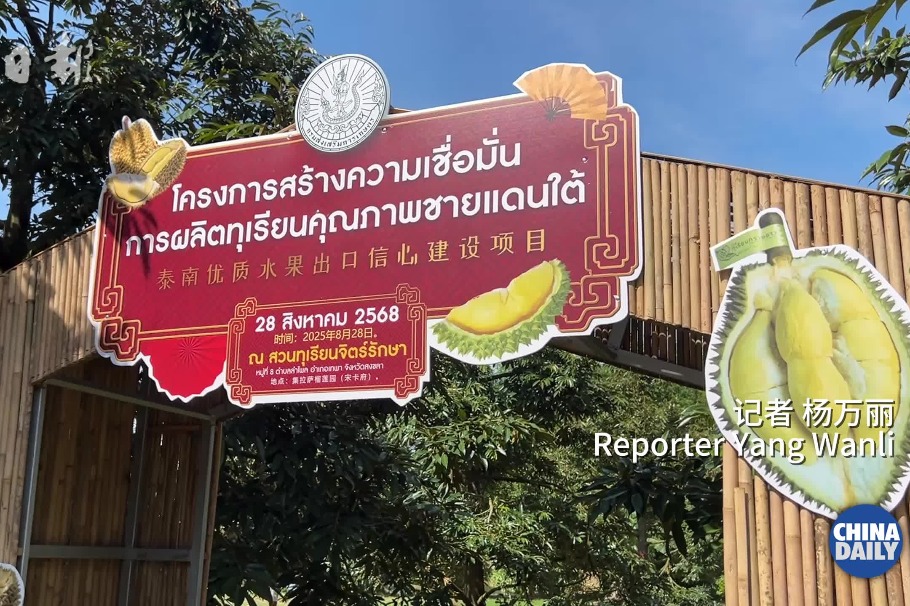Kindred spirits
The harmony and unity of the SCO provides a reference for the global family of nations


Throughout the 24 years of development of the Shanghai Cooperation Organization, the Shanghai Spirit has been fully demonstrated, featuring "mutual trust, mutual benefit, equality, consultation, respect for diversity of civilizations and pursuit of common development", which reflects the Chinese philosophy of harmony and unity.
Harmony is an important goal since the establishment of the SCO. The first meeting of the "Shanghai Five" mechanism, the founding incarnation of the SCO, held in April 1996, established the principle of resolving historical disputes through peaceful means such as dialogue and negotiations, and signed the agreement on deepening military trust in border regions. One year later, the five heads of state signed the Agreement on Mutual Reduction of Military Forces in Border Areas. The signing of the two agreements laid the foundation for peace and stability in the Eurasian region after the end of the Cold War.
At its first summit in 2001, the organization adopted the Shanghai Convention on Combating Terrorism, Separatism and Extremism. Since then, the SCO countries have jointly conducted a series of military exercises, including peace missions and the Tianshan antiterrorism drills, playing an important role in maintaining regional security and stability.
In July 2023, the Statement of the Council of SCO Heads of State on Countering Radicalization Leading to Terrorism, Separatism and Extremism was issued, emphasizing that SCO member states, guided by the Shanghai Spirit, are committed to jointly strengthening regional peace, security and stability. The statement calls on the international community to jointly uphold the central role of the United Nations and strengthen global counterterrorism cooperation.
Unity is essential for the sustainable development of the SCO. In terms of sustainable development, economic cooperation is a key area of collaboration for the SCO. In September 2001, the SCO member states signed the Memorandum between the Governments of the Member States of the SCO on Fundamental Goals and Directions of Regional Economic Cooperation and Launch of the Process of Creating Favorable Conditions for Trade and Investment in Almaty, Kazakhstan. In the following year, the SCO established ministerial meeting mechanisms for trade, economy and transport to foster practical cooperation in areas such as trade, investment, transportation and energy.
In October 2005, the China Development Bank signed an agreement with Russian banks, including the State Corporation Bank for Development and Foreign Economic Affairs (Vnesheconombank), on the establishment of the SCO Interbank Consortium. This is the most important investment and financing cooperation mechanism and platform within the SCO framework, marking the beginning of rapid development for economic cooperation within the SCO.
The SCO's total economy has grown significantly. In 2024, the total trade volume of SCO member states exceeded $8 trillion, accounting for one-fourth of the world's total trade volume.
In addition to economic cooperation, the SCO's areas of collaboration also encompass cultural exchanges, interconnectivity, science and technology, among other things.
For instance, to enhance cooperation and exchanges within the region, the SCO member states jointly promoted the establishment of the SCO University in 2007. More than 80 educational institutions from the member states have since engaged in exchanges and collaboration in fields such as regional studies, ecology, information technology and nanotechnology.
In terms of interconnectivity, the SCO has held 12 meetings of its ministers of transport since 2002 and signed a series of important documents, including the Agreement on International Road Transportation Facilitation in Dushanbe in 2014, significantly enhancing cooperation on transportation corridors and air transport within and among the SCO member states. In 2015, the SCO (Lianyungang) International Logistics Park was established, and its dedicated railway line officially opened in 2021.
In the field of science and technology, a series of important documents have been adopted, including the Statement of the Council of Heads of State of the SCO on Strengthening Cooperation in Science, Technology and Innovation, and the Statement of the Council of SCO Heads of State on Cooperation in Digital Transformation. In 2023, the China-SCO Big Data Cooperation Center was launched, and the Digital Technology Platform for SCO countries was inaugurated in Beijing, laying a solid foundation for deeper cooperation among all parties in the field of digital technology.
In fact, peace and security and cooperation and development have been major goals of the SCO over the past 24 years, which constitutes the foundation of the Shanghai Spirit.
Today, with the expansion of its membership and changes in the international political and economic landscape, the SCO faces several challenges, including balancing geopolitical competition and cooperation, addressing security threats and enhancing counterterrorism collaboration, overcoming imbalances in economic cooperation and development, as well as coping with interference from external forces.
Nevertheless, the member states' pursuit of the major goals has remained unchanged, and their willingness to cooperate has grown even stronger.
In response to practical needs, China, as this year's president of the SCO, has once again taken on the historic responsibility of promoting the Shanghai Spirit and courageously fulfilling the mission of the times.
Chinese President Xi Jinping has called for building a common home featuring solidarity and mutual trust, peace and tranquility, prosperity and development, good-neighborliness and friendship, as well as fairness and justice, in his speech at the expanded meeting of the SCO, in Astana, Kazakhstan. This has propelled the organization toward the goal of building a community with a shared future.
The SCO Tianjin Summit, the largest summit in the history of the organization, marked a highlight of regional unity and cooperation. China is seeking to deepen and strengthen practical cooperation in the security, economic and cultural fields, and expand the organization's international influence. In doing so, the SCO can provide a regional solution that can serve as a valuable reference for global governance.
The author is an associate research fellow at the Institute of World Economics and Politics at the Chinese Academy of Social Sciences and the National Institute for Global Strategy at the CASS. The author contributed this article to China Watch, a think tank powered by China Daily.
The views do not necessarily reflect those of China Daily.
Contact the editor at editor@chinawatch.cn.
















